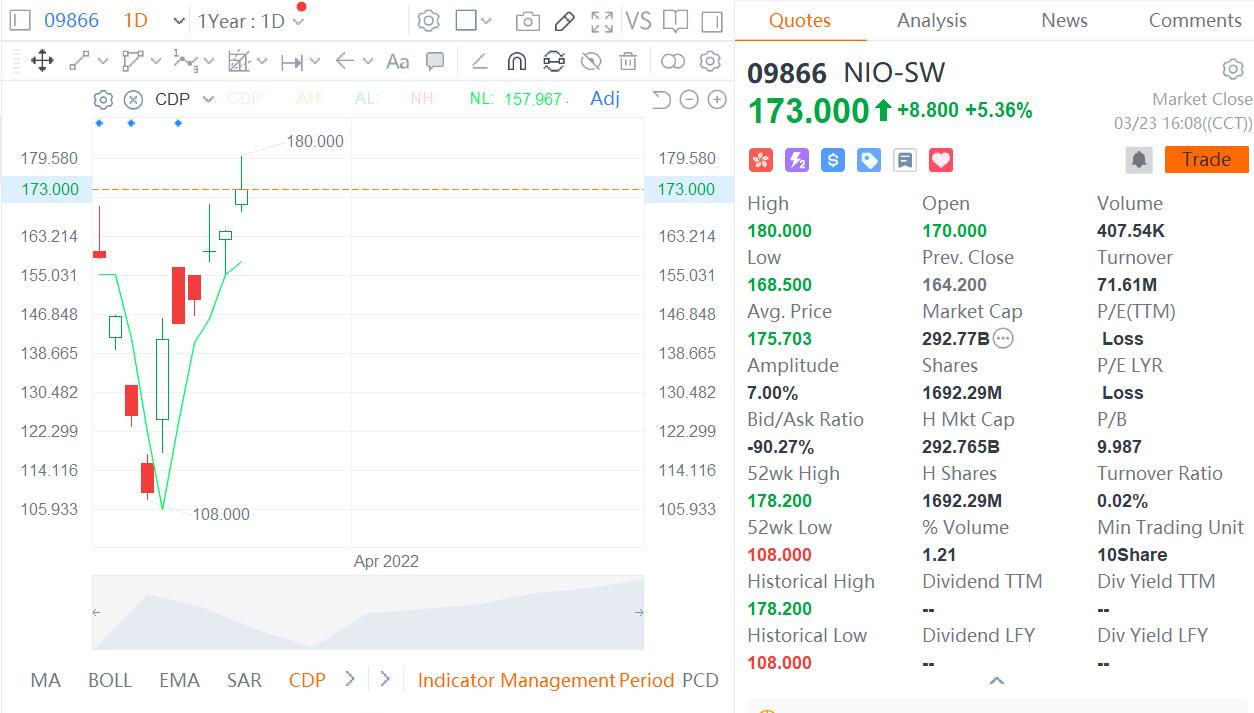Nio closes at record high in Hong Kong after six-day winning streak
Since March 16, Nio has accumulated nearly 60 percent gains in Hong Kong.
Despite the poor timing of its Hong Kong debut, Nio's shares have recovered all the losses since its secondary listing.
By the close of trading, Nio (NYSE: NIO, HKG: 9866) was up 5.36 percent to HK$173 in Hong Kong. That gave the company's shares a sixth straight day of gains, a new high since trading in the city on March 10.
Nio has gained nearly 60 percent cumulatively in Hong Kong since March 16.

Hong Kong stocks rose overall today, with the Hang Seng Index closing up 1.21 percent and the Hang Seng Tech Index up 2.05 percent. Nio's local peer Xpeng Motors (NYSE: XPEV, HKG: 9868) rose 1.91 percent, while Li Auto (NASDAQ: LI, HKG: 2015) fell 1.02 percent.
For Nio, it's worth noting that as a number of electric vehicle companies, including Xpeng and Li Auto, raise prices, the company's president has made it clear they won't follow suit.
On top of that, Nio's flagship sedan, the ET7, is expected to be delivered to its first owners on March 28.
However, it is still not the fundamentals but the geopolitical environment that is affecting the stock performance of Nio and its peers.
Shortly after Nio's Hong Kong listing, factors including investor concerns about delisting Chinese companies from the US caused its share price to fall for four consecutive days.
On March 16, Nio's shares traded in Hong Kong jumped 29.11 percent as a high-level financial meeting in China expressed support for capital markets and for Chinese companies listing outside the country, and was the start of a string of gains.
On March 22, a Reuters report said Chinese regulators have asked a number of companies, including Alibaba, Baidu and JD.com, to prepare for more audit disclosures as Beijing steps up efforts to ensure domestic companies remain listed in New York.
These are signs that investor concerns about delisting risks may be easing gradually, any new developments are expected to be a new catalyst for Chinese companies to recover ground in the US.

